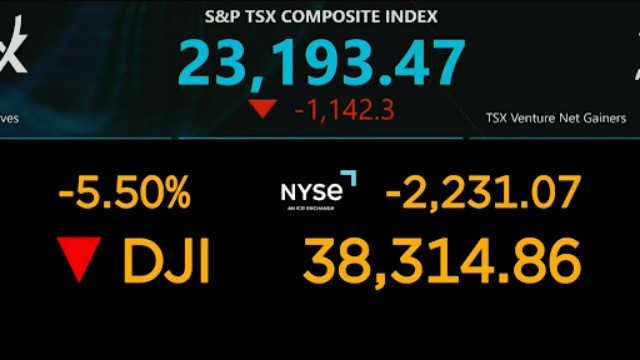
People are gathered outside a BlackRock showroom in Davos, Switzerland, on January 22, 2020. REUTERS/File photo.
BlackRock, the world’s largest asset manager, reported a record $10.65 trillion in assets under management for the second quarter of 2024. This impressive growth comes as client investments increased and more funds flowed into the company’s popular exchange-traded funds (ETFs). The surge in stock prices and a strong market environment have played significant roles in this achievement.
Over the past few months, stock markets have hit new highs, bolstered by optimism about the U.S. economy and excitement around artificial intelligence (AI) stocks. In the second quarter alone, the S&P 500 index rose nearly 4%, which helped BlackRock grow its assets from $9.43 trillion a year ago and $10.5 trillion just last quarter.
Looking ahead, BlackRock plans to finalize two acquisitions that will enhance its focus on infrastructure and private market investments, both seen as key growth areas. Larry Fink, BlackRock’s chairman and CEO, expressed strong optimism for the future, highlighting significant opportunities for both clients and shareholders in the coming years. He noted a particular interest in investing in energy transition and AI-related data centers, emphasizing the rising demand for infrastructure debt.
Last month, BlackRock announced its decision to acquire Preqin, a private markets data provider, for nearly $3.2 billion. This follows a previous acquisition of Global Infrastructure Partners for $12.5 billion, further positioning BlackRock as a leader in infrastructure investment.
Kyle Sanders, a senior equity analyst, pointed out that while private markets present growth potential, they also offer the chance to charge higher fees compared to traditional ETFs. This strategic move aligns with BlackRock’s aim to expand into higher-margin investment products.
During the quarter, BlackRock experienced net inflows of $81.57 billion, slightly surpassing the $80.16 billion seen a year prior. ETFs were particularly successful, attracting $83 billion in inflows, marking the best start to a year in the company’s history.
The firm is optimistic about future debt inflows as investors are expected to shift from high-yield cash investments to riskier fixed-income products, especially as the Federal Reserve begins to lower interest rates. Fink noted that clients globally are reassessing their investment risks in light of these changes.
BlackRock's stock experienced a modest increase after initially dropping. While shares have risen about 2% this year, they have lagged behind the S&P 500’s impressive 18% gain. Analysts like Cathy Seifert from CFRA Research, who maintains a "buy" rating on BlackRock, suggested that the stock's muted performance might reflect high expectations for revenue growth from investors.
In terms of financial performance, investment advisory and administration fees rose by 8.6% to $3.72 billion, while revenue from technology services increased by 10% to $395 million. Overall, BlackRock's total revenue climbed 8% to $4.81 billion, with net income reaching $1.50 billion, or $9.99 per share, compared to $1.37 billion, or $9.06 per share, in the same quarter last year.















